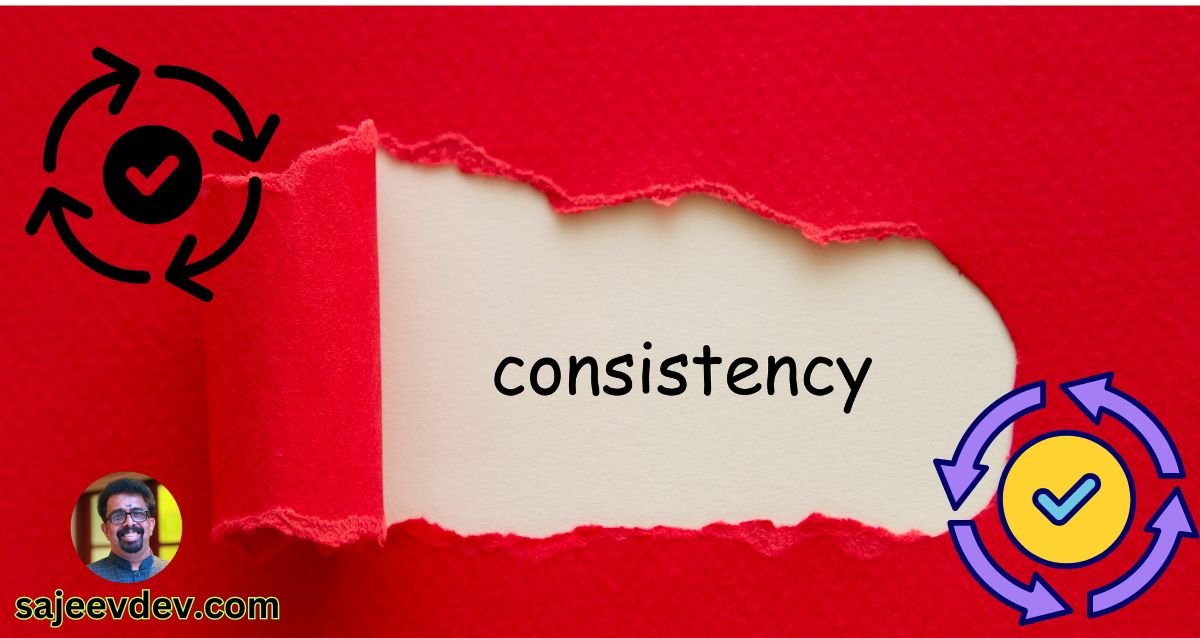Self-belief is a powerful psychological foundation that significantly influences personal growth and development
Self-belief is a powerful psychological foundation that significantly influences personal growth and development. It refers to the conviction individuals hold about their abilities, skills, and potential to achieve set goals and navigate life’s challenges. This intrinsic confidence is crucial, especially during trying moments when doubt and fear can easily overwhelm one’s spirit. When one believes in oneself, they are more likely to take calculated risks, pursue opportunities, and overcome obstacles that might otherwise seem insurmountable.
Self-belief functions as an inner champion, encouraging individuals to maintain a positive outlook even when external circumstances appear daunting. It empowers individuals to push through setbacks, learn from experiences, and continue striving for personal and professional advancement. When faced with adversity, a strong sense of self-belief can be the defining factor that propels an individual towards resilience and success.
Moreover, cultivating self-belief is essential for effective decision-making and goal-setting. When individuals perceive themselves as capable, they are more inclined to set ambitious objectives and work diligently to achieve them. This self-assured mindset creates a cycle of motivation and achievement, reinforcing the belief that they can indeed reach their aspirations. Additionally, self-belief plays a significant role in enhancing self-esteem and fostering a sense of belonging, essential elements in navigating social interactions and forming supportive relationships.
As we explore the importance of being your own greatest supporter, it becomes evident that self-belief is not merely a personal asset, but rather a component critical to fulfilling one’s potential. Cultivating this belief within oneself translates not only to improved performance but also to an enriched and more meaningful life experience. Embracing self-belief can lead to transformative outcomes, underscoring its significance in personal development.
The Role of Self-Confidence in Success
Self-confidence is a crucial element in achieving success across various domains of life. It refers to the belief in one’s abilities, qualities, and judgment, and serves as a foundational pillar for personal and professional achievements. Research consistently highlights a direct correlation between self-confidence and success, revealing that individuals who possess strong self-belief are generally more likely to embrace opportunities, face challenges head-on, and take calculated risks. This characteristic can significantly influence career advancement, relationship dynamics, and the realization of personal goals.
In the realm of career development, self-confidence empowers individuals to step outside their comfort zones. Those who believe in their capabilities tend to apply for promotions, pursue leadership roles, and engage in networking opportunities that may otherwise feel intimidating. For instance, studies suggest that job candidates who exhibit confidence during interviews are perceived as more competent and are thus more likely to receive job offers, indicating that self-belief can profoundly affect professional trajectory.
Moreover, self-confidence extends to interpersonal relationships. Individuals who have faith in themselves are more likely to establish healthy connections, express their thoughts and emotions openly, and navigate conflicts effectively. This assurance not only attracts likeminded people but also fosters an environment where others feel inclined to share their views, complementing collaborative efforts and enhancing overall relationship satisfaction.
Additionally, when pursuing personal goals, self-confidence instills a sense of resilience. Individuals with high self-belief are better equipped to recover from setbacks and maintain motivation when faced with obstacles. Anecdotal evidence suggests that those who approach challenges with a positive mindset are more likely to remain persistent, ultimately leading to greater achievement. Thus, cultivating self-confidence can be seen as an essential strategy for enhancing success across different avenues of life.
Developing a Positive Self-Image
In the journey towards self-belief and personal empowerment, cultivating a positive self-image is paramount. A healthy self-image is essential for fostering self-acceptance and self-love, which are foundational elements of individual growth and happiness. By developing a positive self-image, individuals can enhance their self-worth, resilience, and overall mental well-being.
One effective strategy in nurturing a positive self-image is the practice of affirmations. Daily affirmations involve repeating positive statements about oneself, reinforcing a sense of worth and potential. For example, regularly affirming beliefs such as “I am capable” or “I deserve love and respect” can overwrite negative thoughts and cultivate a healthier mindset. This practice encourages individuals to embrace their strengths and acknowledge their achievements, no matter how small.
Mindfulness is another powerful tool in this process. By engaging in mindfulness practices, one can develop greater self-awareness and better manage negative self-talk. Techniques such as meditation or journaling allow individuals to reflect on their thoughts and feelings, promoting an understanding of oneself that is both compassionate and objective. This heightened awareness breeds appreciation for personal traits and accomplishments, fostering a positive self-image over time.
Additionally, surrounding oneself with supportive individuals is crucial in enhancing self-worth. Engaging with friends, family, or communities that celebrate individuality and provide encouragement can mitigate feelings of self-doubt. These supportive relationships cultivate a sense of belonging and validation, further reinforcing a positive self-image.
In summary, developing a positive self-image involves a multifaceted approach that emphasizes self-acceptance and love. Incorporating affirmations, mindfulness practices, and surrounding oneself with positivity creates a robust framework for enhancing self-worth and ultimately leads to greater self-belief.
Overcoming Self-Doubt and Negative Thoughts
Self-doubt and negative thoughts are common barriers that can impede personal progress and development. These feelings often stem from various sources, including past experiences, societal pressures, and negative self-perceptions. For many individuals, these emotions can create a cycle of insecurity that affects their ability to take risks or pursue opportunities. Recognizing the origins of self-doubt is the first step towards overcoming it. By understanding where these feelings arise from, individuals can better address and manage them.
One effective technique to combat self-doubt is reframing negative thoughts into more constructive perspectives. This cognitive restructuring involves challenging the validity of one’s negative beliefs and replacing them with positive affirmations or realistic assessments of situations. For instance, instead of telling oneself, “I can’t do this,” it may be more beneficial to rephrase it as, “I will give this my best effort and learn from whatever outcome arises.” This shift in thinking can enhance self-belief and encourage a proactive stance when facing challenges.
Practicing resilience is another crucial component in overcoming self-doubt. Resilience enables individuals to navigate difficulties and emerge stronger from adversities. This can involve developing a mindset that embraces growth and learning rather than fear of failure. Individuals can cultivate resilience through various strategies, such as maintaining a support network, engaging in practices that promote mental well-being like mindfulness or meditation, and setting achievable goals. Each of these elements contributes to building a more robust sense of self-worth and self-belief.
In conclusion, addressing self-doubt and negative thoughts requires a conscious effort to reframe perceptions and develop resilience. By fostering a positive mindset and equipping oneself with effective coping strategies, individuals can navigate challenges with greater confidence and ultimately become their own biggest fan.
The Importance of Self-Affirmation
Self-affirmation is a psychological practice that plays a significant role in bolstering self-belief and fostering mental well-being. By focusing on one’s core values and positive attributes, individuals can cultivate a robust sense of self-worth. This process not only strengthens personal identity but also empowers individuals to navigate challenges with resilience and confidence. Integrating self-affirmation into daily routines can be particularly beneficial, as it creates a sustainable habit that reinforces positive thinking.
One effective method for incorporating self-affirmations is the creation of personalized affirmation statements that resonate with individual experiences and aspirations. These statements should be clear, positive, and present-tense, reflecting what one wants to embrace in their life. Examples might include, “I am capable of achieving my goals” or “I am worthy of love and respect.” By regularly repeating these affirmations, individuals can gradually reshape their mindset and internal narrative, fostering a more optimistic outlook.
Additionally, utilizing visual reminders can enhance the practice of self-affirmation. Writing affirmations on sticky notes and placing them in visible locations—such as on mirrors, desks, or refrigerators—serves as daily prompts. This consistent exposure reinforces the affirmations and allows individuals to internalize their messages. Moreover, incorporating practices such as meditation or journaling can provide deeper reflection, helping to identify personal strengths and values, further solidifying the essence of self-affirmation.
Consistent practice of self-affirmation leads to improved emotional resilience, greater confidence, and a positive self-image. By nurturing this fundamental aspect of self-belief, individuals equip themselves with the tools necessary to handle the complexities of life. Engaging in this practice daily creates a profound transformation in how one perceives themselves and their potential in various aspects of life.
Encouraging Yourself During Tough Times
In challenging periods, self-encouragement becomes essential for maintaining motivation and resilience. One effective strategy is to practice positive self-talk. Replace negative thoughts with affirmations that reinforce your capabilities and potential. This inner dialogue can significantly impact your mindset, promoting a healthier outlook during tough times. For instance, instead of thinking, “I can’t do this,” try shifting to, “I am capable and can overcome this challenge.”
Another powerful tool is the practice of self-compassion. It is vital to allow yourself grace, recognizing that everyone faces difficulties. You can engage in self-compassion exercises by writing down your thoughts and feelings without judgment. Consider what you would say to a friend in a similar situation, and offer yourself the same kindness. This practice can foster a sense of understanding and calm, preventing self-doubt from spiraling.
Setting achievable goals is equally important. Break down larger tasks into smaller, manageable steps. Celebrate each small victory as you progress towards your goal, as this recognition builds confidence and fuels motivation. Keeping a journal to track your accomplishments, no matter how minor, can reinforce your sense of progress during tough times.
Additionally, surround yourself with positivity. Engage with uplifting content, whether through books, podcasts, or inspiring quotes. Creating a vision board displaying your goals and dreams can serve as a constant reminder of what you are striving to achieve. These visual cues can enhance your self-belief and guide your actions, especially during difficult periods.
Ultimately, cultivating self-encouragement techniques can empower you to navigate life’s obstacles with a strengthened sense of belief in your abilities, allowing you to emerge from tough times with resilience and confidence.
Learning from Setbacks
Setbacks and failures are inherent aspects of the human experience. In various facets of life—whether in personal ambitions, career endeavors, or relationships—individuals frequently encounter obstacles that can lead to disappointment. However, the manner in which one interprets these setbacks significantly influences self-belief and the capacity to move forward. Rather than viewing failure as a reflection of one’s abilities or worth, it can be beneficial to adopt a perspective that sees failures as invaluable learning opportunities. This shift in mindset not only aids in personal growth but also enhances resilience.
When faced with a setback, it is crucial to analyze the experience critically. This process involves acknowledging the emotions associated with failure, such as frustration or sadness, while also identifying the lessons that can be extracted from the situation. By engaging in self-reflection, individuals can discern patterns in their efforts, recognize areas for improvement, and develop strategies to avoid similar pitfalls in the future. This proactive approach helps to strengthen self-belief, as it reinforces the idea that personal development is a continuous journey rather than a linear path to success.
Moreover, cultivating a perception of setbacks as a natural part of progress encourages a greater sense of acceptance. When one realizes that everyone faces challenges, the pressure associated with needing to be perfect is alleviated. This understanding fosters a healthier, more realistic outlook on personal capabilities, allowing individuals to embrace vulnerability and the growth that emerges from it. As such, transforming how setbacks are perceived not only fortifies self-belief but also paves the way for future achievements. Ultimately, viewing failures through a constructive lens is a vital step in the journey toward becoming one’s own biggest fan.
Surrounding Yourself with Positivity
Creating an environment that fosters self-belief is essential for personal growth and development. One effective way to cultivate such an environment is by surrounding yourself with positivity. Positive influences can significantly impact our mindset, encouraging us to embrace our strengths and pursue our goals with confidence. Supportive relationships, whether with family members, friends, or colleagues, play a crucial role in reinforcing the message of being your own biggest fan.
Building a network of individuals who uplift and inspire you is vital. These relationships offer encouragement during challenging times, remind you of your worth, and help you recognize and celebrate your achievements, big or small. Engaging with positive individuals provides a safe space to discuss aspirations and seek feedback, which can further enhance self-belief. By sharing experiences and celebrating successes together, you can nurture a collective growth mindset.
Moreover, the communities we engage with can shape our beliefs and attitudes. Being part of groups that promote positivity, such as community organizations or interest-based clubs, can provide valuable opportunities for personal and professional development. These environments often encourage collaboration and innovation, which fosters a sense of belonging and purpose. Surrounding yourself with such positivity serves to reinforce the notion that you are capable and deserving of success.
Additionally, creating a physical space that resonates with positive energy can also enhance your self-belief. This can mean decluttering your environment, adorning your space with inspiring quotes or artwork, or creating a sanctuary that reflects your values and aspirations. Engaging with materials that promote positivity can serve as daily reminders of your potential.
To truly become your own biggest fan, it is essential to consciously select the influences that surround you, ensuring they contribute positively to your self-perception and growth journey. Positivity is a powerful tool; when harnessed effectively, it enables us to transform our beliefs about ourselves and our capabilities.
The Journey to Self-Belief
In today’s fast-paced and competitive world, the significance of self-belief cannot be overstated. Being your own biggest fan is not merely a motivational phrase; it embodies a crucial mindset that can lead to profound personal transformation. Embracing self-belief encourages individuals to engage deeply with their journey of self-discovery and self-acceptance. This process involves acknowledging one’s strengths and weaknesses and recognizing that every setback is a valuable learning opportunity.
Developing a strong sense of self-belief often requires persistent effort and dedication. It is an ongoing practice that necessitates nurturing a positive inner dialogue and cultivating resilience. Acknowledging personal achievements, no matter how small, can reinforce a sense of capability and confidence. Furthermore, surrounding oneself with supportive and encouraging individuals can significantly enhance one’s belief in their abilities. The power of positive reinforcement from others can help solidify a solid foundation of self-esteem.
Moreover, the journey to self-belief is also about embracing vulnerability and being open to growth. Accepting oneself fully, with all imperfections, is a fundamental step towards fostering a deeper belief in one’s potential. It is essential to understand that self-belief does not equate to arrogance or denial of shortcomings; rather, it signifies an authentic acknowledgment of one’s worth and possibilities. Each individual’s path is unique, and honoring this uniqueness is vital in the pursuit of self-improvement.
Ultimately, being your own biggest fan lays the groundwork for achieving goals and overcoming challenges. As readers embark on this journey, it is crucial to remember that self-belief is a continuous process of growth and evolution.



